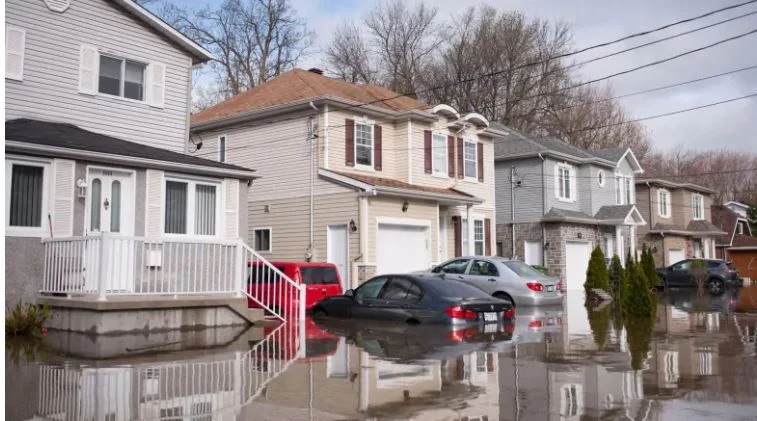Over five years, the sewer system beneath one of the oldest streets in North America has been rebuilt. But the story of the Water Street project goes back much further, to the days when raw sewage flushed straight into St. John’s harbour. Learn the history and see how water works now.
Montreal experiments with urban water features that could protect the St. Lawrence River
With both feet sinking into damp dirt, urban planner Pascale Rouillé surveys a narrow strip of land that will soon be used to not only retain runoff, but also be bursting with greenery that the community can enjoy. Tucked in next to a warehouse known as Bâtiment 7 in the Montreal neighbourhood of Pointe-Saint-Charles, near the intersection of Le Ber and Sainte-Madeleine streets, the terrain will become what has been dubbed a "blue-green alley."
Canada plans to welcome millions of immigrants. Can our aging infrastructure keep up?
The Canadian population just blew past 39 million, and the country is only going to get bigger: Ottawa announced in November it wants to bring in a half-million more immigrants each year. The population grows apace, our infrastructure — governmental and private — is struggling to keep up. And it’s a story playing out across Canada. Few young people can afford a home, we’re all stuck on gridlocked roads or jammed into buses and subways, and our hospitals are overcrowded. Climate change will only further weaken infrastructure that is crumbling in many parts of the country. And Canada isn’t particularly known for getting stuff done quickly anymore.
Lack of clean water in Nunavik means schools are closing, staff fleeing
Dozens of employees at primary and secondary schools in Nunavik are sounding the alarm about the region's deteriorating water supply, saying the situation is putting their students at risk, a union report seen by Radio-Canada shows. Thirteen of the 14 towns in Nunavik don't have an aqueduct or sewer system. People there normally rely on tanker trucks to supply drinking water and remove wastewater. But in recent months there have been supply interruptions because of broken infrastructure, a lack of trucks and a worker shortage, problems that were worsened by the pandemic and a harsh winter last year.
People posing as City of Toronto workers attempting to enter homes, get personal info
Individuals posing as City of Toronto staff have attempted to enter homes and gather personal information, the City warned Wednesday. In posts on Twitter, the City said it has been notified that people are posing as Toronto Water staff. The post noted that staff are currently conducting testing in the sewer system to identify defects. But officials said staff don’t need to enter homes to do the work and would never ask for personal information.
Canadian refinery spills diesel into St. Clair River
An unknown amount of petrochemicals spilled into the St. Clair River from a refinery in Canada during heavy rainfall Wednesday night. An overflow in Suncor’s Sarnia refinery’s internal sewer system left a sheen on the river that caused officials on both sides of the international border to close off drinking water intakes. But Canadian authorities cleared water plants to return to normal activity Thursday morning.
Rate increases proposed to deal with water, sewer infrastructure backlog Author of the article:
Sarnia is going to spend a lot of money replacing water and sewer assets over the next 60 years, according to the latest projections from city staff. Building off a recent storm sewer infrastructure report that predicts hundreds of millions of dollars in replacement expenses cumulatively until around 2080, the story is about the same for water pipes and sewer system replacement costs, city officials recently reported to council.
Ontario should stop playing 'jurisdictional ping pong' with First Nations' water crisis, says NDP MPP
The NDP MPP for the region with the longest-running boil water advisories of any First Nations in Canada is demanding the Ontario government become part of the solution. Sol Mamakwa, who represents the riding of Kiiwetinoong in northwestern Ontario, said the provincial government could do more to help alleviate the suffering of communities on long-term drinking water advisories.
'It's a problem for society': Climate change is making some homes uninsurable
As an insurer, Intact obviously has its own data and maps. Based on that, the company assumes as many as five per cent of those newly at-risk properties will be simply uninsurable. Brindamour warns that "if you're in a zone that gets flooded repeatedly, or where the odds of being flooded has increased meaningfully, it'll be hard to find insurance from private capital."










